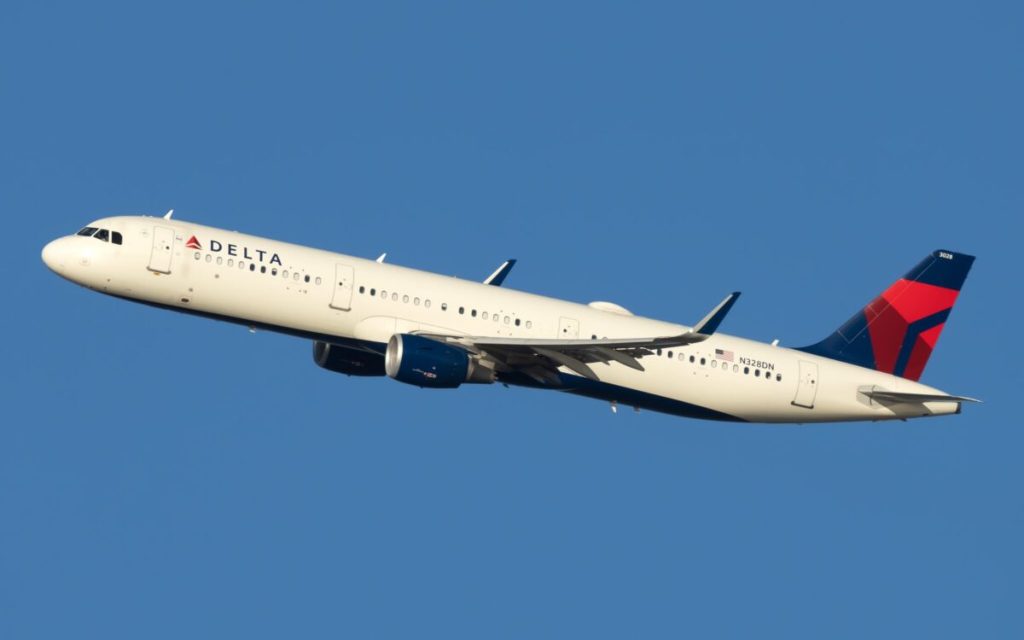
The post-pandemic boom for the airline industry could come to an end as tariffs, a sinking stock market, and declining consumer confidence weaken travel demand.
At the start of the year, analysts expected strong results — premium and international travel would continue to be healthy, corporate travel was slowly bouncing back, and even domestic travel was starting to make a comeback.
But now, the latest round of sweeping tariffs from the Trump administration has sparked fears of a potential recession. Some Wall Street leaders have already declared the U.S. is in a recession.
“One CEO specifically said the airline industry is a proverbial bird in a coal mine — canary in the coal mine — and I was told that the canary is sick already,” said BlackRock CEO Larry Fink at the Economic Club of New York on Tuesday, according to CNBC.
Government travel has declined significantly following mass layoffs. And international demand from Canada, Mexico, and Europe is starting to weaken. Data compiled from Cirium found that advance bookings between the U.S. and Europe were down 12.6% compared to last year, but it cautioned that its data was primarily from online travel agencies.
An open question is whether a falling stock prices will lead to lower spending by high-income flyers. Airlines have invested heavily in premium offerings as they’ve become a major profitability driver.
“There’s never been a downturn where the industry has been less dependent on corporate demand, the category usually hit the hardest,” an investor note from JPMorgan analyst Jamie Baker read. “On the other hand, there’s never been a downturn where the industry has been more dependent on the premium category, which has yet to be tested by a US recession.”
U.S. Airlines Set to Cut 2025 Outlooks
Delta Air Lines is set to report its first-quarter earnings Wednesday morning, and analysts are expecting U.S. airlines to cut their outlooks for 2025.
Delta already lowered its first quarter outlook, saying in a regulatory filing that it had seen softer demand for corporate and leisure travel.
“We expect a world of slower growth, higher inflation, and a more isolationist US to significantly disrupt the competitive environment for airlines and ground the multiples back in the penalty box over the near-term,” wrote TD Cowen analyst Tom Fitzgerald in a note to investors on April 4.
American Airlines and Southwest Airlines have also cut their first quarter outlooks, citing the current economic environment as a reason.
Fitzgerald said in the note that he expected legacy carriers to fare better during an economic downturn compared to ultra-low-cost carriers.
“While we do expect some consumers to trade down, we believe there is greater likelihood that consumers trade down within the same carrier’s cabin (e.g., moving from Premium Economy to Standard Economy) than they pivot to a low-cost carrier,” he said in the note.
Melius Research analyst Conor Cunningham said he expected airlines to make some capacity cuts.
“2025 is clearly not the year airlines had hoped for with consumer and business confidence rattled by the Trump administration’s approach to policy in turn creating uncertainty,” the note read.
Corporate demand, which was continuing to strengthen as companies changed their in-office policies, is also now in flux. Deutsche Bank noted it was seeing weaker demand for corporate transatlantic routes, most notably at London Heathrow, the largest corporate transatlantic market.
However, an investor note from Raymond James noted that low fuel prices could offer airlines some reprieve.
“While we expect the current policy rollercoaster ride to continue over the next year (a challenging scenario for corporate and consumer travel demand), we are modeling some improvement (albeit not full recovery) in 2H25,” the note read.
Airlines Sector Stock Index Performance Year-to-Date
What am I looking at? The performance of airline sector stocks within the ST200. The index includes companies publicly traded across global markets including network carriers, low-cost carriers, and other related companies.
The Skift Travel 200 (ST200) combines the financial performance of nearly 200 travel companies worth more than a trillion dollars into a single number. See more airlines sector financial performance.
Read the full methodology behind the Skift Travel 200.



